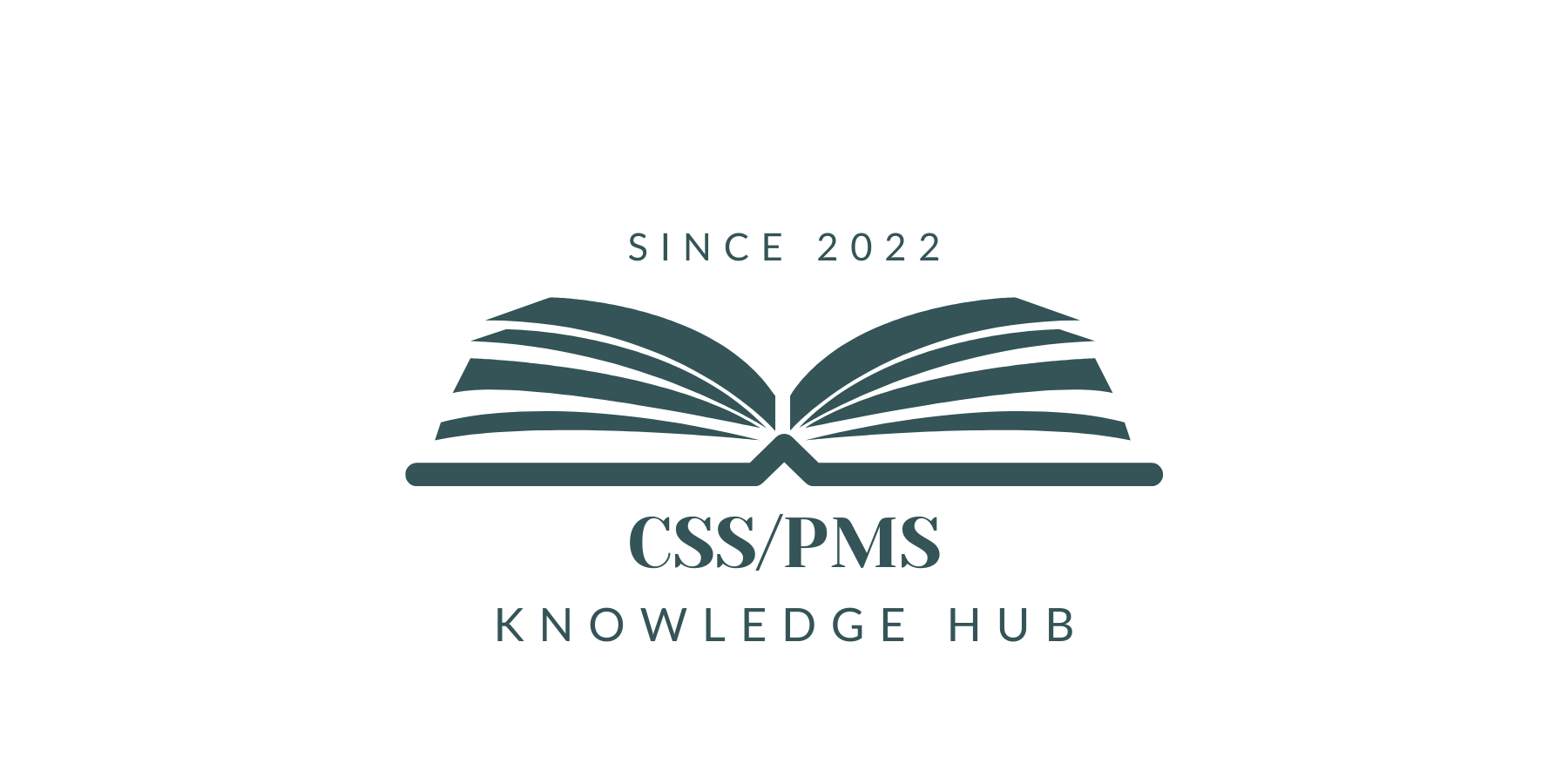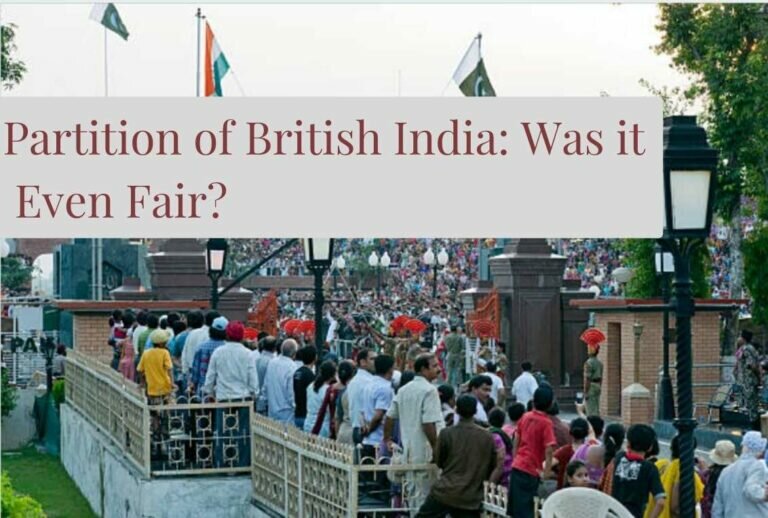Pakistan’s Relations with India – 1989 to Onwards
Pakistan’s relations with India have been and are still crucial in world politics. When both countries got independence from the British in 1947, this event is a landmark in history. Soon after independence, despite having cultural and linguistic ties both got into many conflicts over Kashmir and other disputes.
In the previous article, we discussed Pak-India relations till 1988. In today’s article, we will discuss from 1989 and onwards.
Chronological Timeline
1989-1996
1989– In the Kashmir valley, armed opposition to Indian control began. After charging the state government with manipulating the 1987 state legislature elections, Muslim political parties established activist wings.
Pakistan reiterated its appeal for the previous UN-sponsored referendum and added that it supported the campaign “morally and diplomatically.”
India claimed that Pakistan was aiding the resistance by giving militants weapons and training. Islamabad denied this.
1991- The two countries also agreed to avoid airspace incursions and create overflight regulations, as well as to give early notice of military drills, maneuvers, and troop movements.
1992– In New Delhi, a joint statement prohibiting the use of chemical weapons was signed.
1996– 1996 – Military officials from the two states meet near the Line of Control to defuse tensions after a string of skirmishes.
1998-1999
1998– India exploded five nuclear weapons at Pokhran in 1998. In retaliation, Pakistan exploded six of its own nuclear weapons in the Chaghi Hills. International sanctions were imposed on both countries as a result of the testing. Both nations conducted long-range missile tests in the same year.
1999– In February 1999, Atal Bihari Vajpayee, the Indian prime minister, met with Nawaz Sharif, his Pakistani counterpart, in Lahore. The Lahore Declaration, the first significant accord between the two nations since the Shimla Accord of 1972, was signed by the two. The Shimla Accord was upheld by both nations, and they both promise to implement a variety of “Confidence Building Measures” (CBMs).

However, as the Kargil conflict erupted in May, some of the diplomatic achievements were lost. As a result of an Indian counter-offensive, which forced them back to the other side of the original LoC, Pakistani soldiers and Kashmiri rebels had taken up crucial positions on the Indian side of the LoC.
Since the two neighbors started conducting nuclear weapons testing, Kargil was the first military battle between them.
General Pervez Musharraf, the chief of the army staff of Pakistan, organized a military takeover in October 1999, removing Nawaz Sharif as prime minister and putting himself in his place.
2001-2003
2001 – The Kashmiri legislature in Srinagar was attacked, resulting in the deaths of 38 people and continued high tensions along the Line of Control (LoC). Farooq Abdullah, the chief minister of Kashmir under the Indian administration, requested that the Indian government conduct a full-scale military campaign against claimed training facilities in Pakistan in response to the incident.
![Pakistani President General Pervez Musharraf, left, is greeted by Indian Prime Minister Atal Bihari Vajpayee at the Presidential Palace in New Delhi on July 14, 2001. [Ajit Kumar/The Associated Press]](/wp-content/uploads/2022/11/Musharaf-and-vajpayee-1024x585.jpg)
Pervez Musharraf, the president of Pakistan, and Atal Behari Vajpayee, the prime minister of India, have a two-day summit in the Indian city of Agra in July. After two days, that summit fell apart because neither side could agree on the crucial Kashmir issue.
14 persons were killed on December 13 in an armed attack on the Indian parliament in New Delhi. India blamed the assaults on Lashkar-e-Taiba and Jaish-e-Muhammad.
2002– Following the strikes, the troops of India and Pakistan gathered at the LoC. Only after international mediation, in October 2002, did the conflict end.
President Musharraf promised that Pakistan will fight terrorism on its own territory while also reiterating the nation’s right to Kashmir.
2003– The two nations came to an agreement to lower tensions and end hostilities across the de facto border. it happened after Musharraf requested a ceasefire along the Line of Control at the UN General Assembly meeting in September.
Also read: | Pakistan affairs Blogs
2004-2007
2004 – At the 12th SAARC summit in Islamabad in January, Vajpayee and Musharraf engaged in direct dialogue. Later in the year, the foreign secretaries of the two nations met. The Composite Dialogue Process, which involves bilateral talks between representatives from several levels of government, started this year (including foreign ministers, foreign secretaries, military officers, border security officials, anti-narcotics officials, and nuclear experts). Manmohan Singh, the new Indian prime minister, declared that India would be lowering its force presence in Kashmir on the eve of a visit there in November.
2006– As a result of an “improvement” in the situation there, India redeployed 5,000 troops from Jammu and Kashmir. However, the two nations were unable to come to an agreement on the withdrawal of troops from the Siachen glacier.
President Musharraf and Prime Minister Singh decided to establish an institutional anti-terrorism framework between India and Pakistan in September.
2007 – A bombing occurred on February 18 at Panipat, to the north of New Delhi, on the Samjhauta Express, which used to run between India and Pakistan. There were 68 fatalities and several injuries.
![People look on at the mass burial of the unidentified bodies of the victims of Samjhauta Express Train attack in Panipat, India. [Mustafa Quraishi/The Associated Press]](/wp-content/uploads/2022/11/funeral-1024x581.jpg)
2008
India entered a Turkmenistan, Afghanistan, and Pakistan framework (TAPI) agreement on a $7.6 billion gas pipeline project this year. Furthermore, India held Pakistan’s Inter-Services Intelligence (ISI) directorate accountable for a bombing that occurred at the Indian embassy in Kabul in July that resulted in 58 fatalities and 141 injuries.
Cross-LoC commerce started in October, however, it was only permitted on two days a week and is restricted to 21 goods.
In Mumbai, India, a number of locations witnessed the shooting of citizens on November 26 by armed attackers. An almost three-day siege of the Taj Mahal Palace & Tower, where gunmen remained holed up until all but one of them was killed in an operation by Indian security forces, was brought on. Other victimized places were the Oberoi Trident Hotel, the Chhatrapati Shivaji Terminus, the Leopold Cafe, the Cama Hospital, the Nariman House Jewish community center, the Metro Cinema, and St. Xavier’s College. In these attacks, more than 160 individuals were murdered.
2009
2009 – While vehemently disputing claims that the plotters were approved of or assisted by Pakistan’s intelligence services, the Pakistani government acknowledged that the Mumbai attacks may have been partially organized on Pakistani soil.
In a meeting outside the Non-Aligned Movement (NAM) conference in Sharm el-Sheikh, Egypt, Indian Prime Minister Singh and Pakistani Prime Minister Yousaf Raza Gilani released a joint statement outlining future negotiations.
In August, India requested that Pakistan bring Hafiz Mohammad Saeed, the leader of Jamaat-ud-Dawa, an Islamic charity with connections to the Lashkar-e-Taiba, to justice by providing Pakistan with a fresh dossier of evidence pertaining to the Mumbai attacks.
2010
In January, across the Line of Control in Kashmir, Pakistani and Indian soldiers exchanged fire. This was the most recent in a series of such events that have increased tension in the region.
The foreign secretaries of India and Pakistan had meetings in New Delhi in February. Following this gathering, the foreign ministers of the two nations met in Islamabad in July.
Later this year, Ajmal Kasab was convicted of murder, conspiring against India, and waging war against it in the Mumbai attacks case in May. He was given the death penalty.
2011-2013
2011 – Indian Home Secretary GK Pillai announced in January that India will alert Pakistan of the 2001 Samjhauta Express attack. In February, the foreign secretaries of the two nations met in Thimpu, Bhutan, and decided to pick up the peace negotiations “on all topics.”
2012 – Just days before the fourth anniversary of the assault, India hanged Kasab, the lone survivor of a fighter group who massacred 166 people in a rampage through Mumbai’s financial district in 2008.
2013 – India and Pakistan accused one another of breaking the cease-fire in Kashmir, in January. Islamabad blamed Indian soldiers for conducting a raid over the border that resulted in the death of a soldier.
2013 – On the fringes of the UN General Assembly in September, the prime ministers of India and Pakistan met in New York. Both leaders concurred to put an end to hostilities between the opposing armies in the contentious Kashmir region.
2014
On February 12, India and Pakistan reached an agreement to free vehicles held in each other’s territory, breaking a three-week standoff that was started after a truck from Pakistan was stopped in India-administered Kashmir for being suspected of transporting brown sugar.
On May 1, Pakistan’s army leader General Raheel Sharif referred to Kashmir as the “jugular vein” of Pakistan and said that the conflict must be settled in accordance with Kashmiris’ wishes and ambitions as well as UNSC resolutions for the sake of regional stability.
Pakistan released 151 Indian fishermen from its prisons as a show of goodwill in May before Narendra Modi was sworn in as prime minister.
On May 27, Pakistani Prime Minister Nawaz Sharif and Indian Prime Minister Narendra Modi met in New Delhi. Both parties indicated a desire to start a new phase in their bilateral relations.
2015-Onwards
2015 – On the occasion of Sharif’s birthday and his granddaughter’s wedding, Modi paid an unexpected visit to Lahore, Pakistan.
2016 – In September, less than two weeks after an attack on an Indian army post that resulted in the deaths of 19 troops, India started what it terms “surgical strikes” on “terrorist formations” in Pakistan-administered Kashmir. Pakistan contested the strikes’ veracity.
Seven Indian troops were murdered in November when rebels posing as police officers raid a significant army camp close to the Pakistani border.
2019 – Early on February 26, India launched airstrikes against the “largest training camp” of the Pakistan-based Jaish-e-Mohammed (JeM) rebel group, killing “a very significant number of terrorists.
Wing Commander Abhinandan of the Indian Air Force (IAF), who was abducted by Pakistan after his MiG 21 Bison aircraft was shot down by a PAF jet, was returned to India at the Wagah border late on Friday.








2 Comments